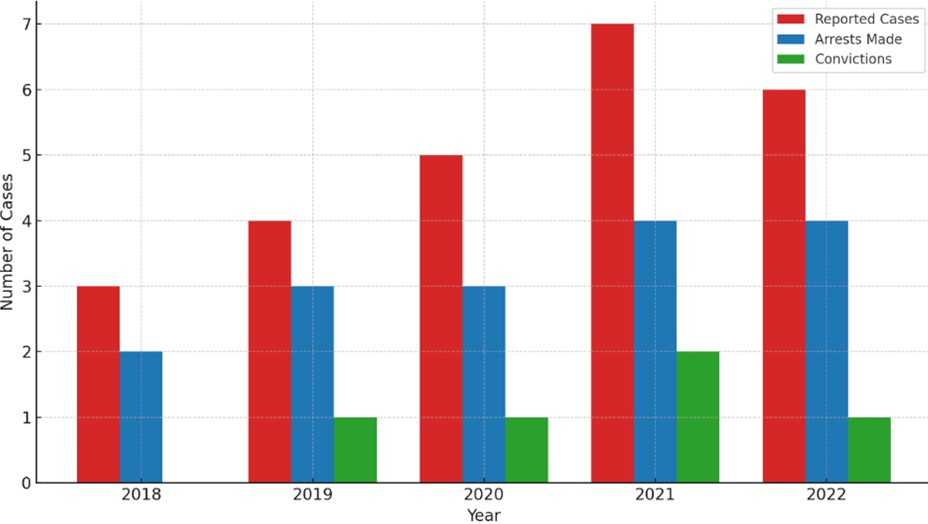Honor Killings in Urban Pakistan A Case Study of North Nazimabad, Karachi (2018–2022) and Its Socio-Cultural and Legal Dimensions
Keywords:
Honor Killings, Gender-Based Violence, Mixed-Methods Research, Extramarital Affairs, Institutional Capacity Building, Digital Tracking MechanismsAbstract
Honor killings remain a pervasive form of gender-based violence in Pakistan, often concealed under cultural justifications and tribal customs. This study investigates the prevalence, socio-cultural roots, and legal challenges of honor killings in the urban locality of North Nazimabad, Karachi, from 2018 to 2022. Using a mixed-methods approach, the research combines case study analysis, crime reports, demographic profiling, and spatial data to assess the scope of honor-based violence in a city often assumed to be progressive. The results reveal that women comprised over 90% of the victims, with primary triggers being love marriages, allegations of extramarital affairs, and perceived violations of family honor. Findings show that while the 2016 anti-honor killing legislation has filled some legal loopholes, enforcement remains weak due to cultural resistance, the influence of informal justice systems like jirgas, and systemic flaws in police and judicial processes. The study highlights that even in urban spaces like North Nazimabad, tribal customs persist, especially among migrant communities, contributing to continued violence. It concludes by emphasizing the need for integrated legal, educational, and social reforms—including community awareness, institutional capacity building, and digital tracking mechanisms—to curb honor killings effectively. The study contributes to the broader discourse on how urbanization intersects with patriarchal norms and calls for stronger governance and gender-sensitive justice mechanisms.








